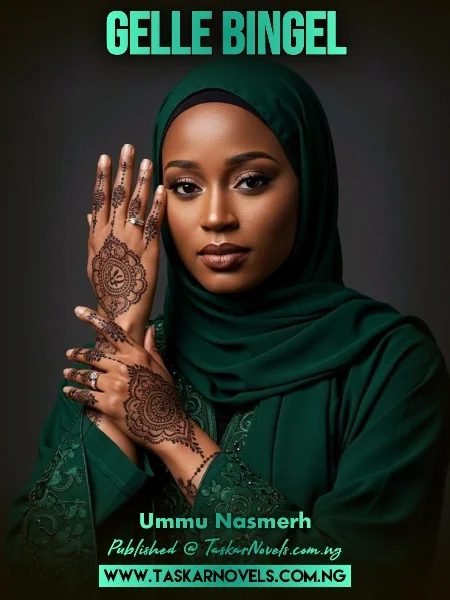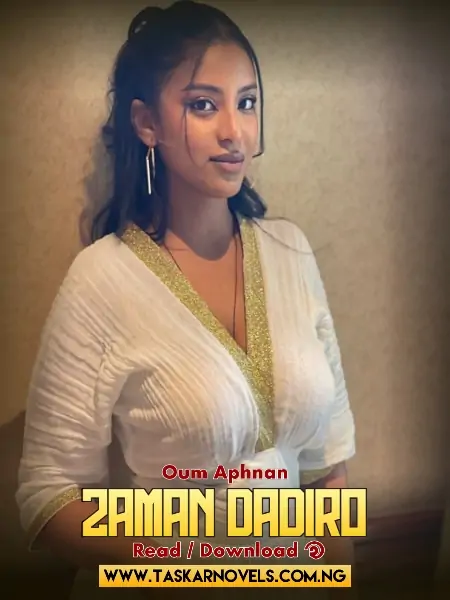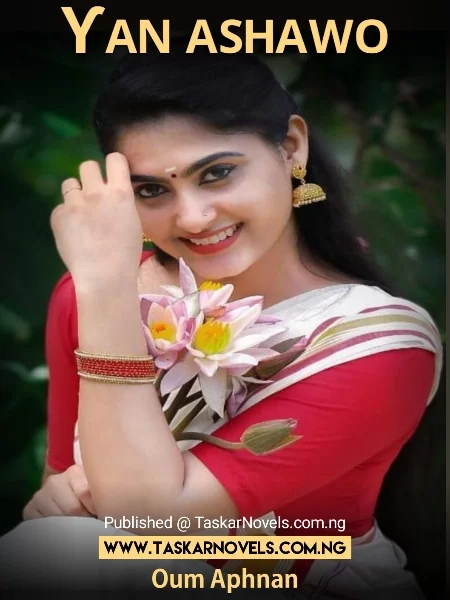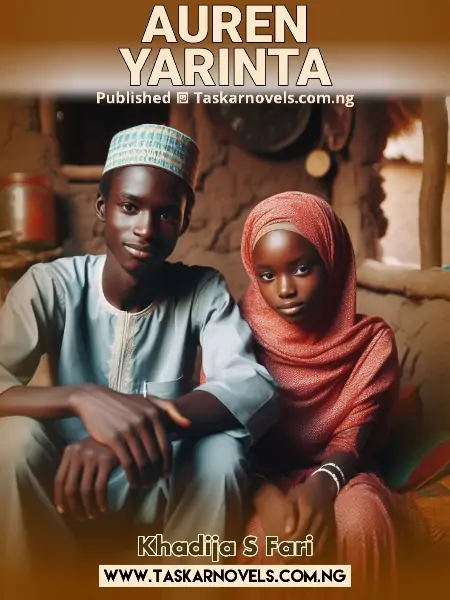
Hamshakiyar Uwa (translated as "Step-Mother's Share" or "The Portion of the Stepmother") is a heartfelt Hausa family drama and romance novel by Halima Abdullahi K/Mashi, a seasoned author renowned for her nuanced portrayals of love, Islamic guidance, and the complexities of blended families in contemporary northern Nigerian society. Released as a paid book (₦600 via Access Bank or MTN card, contact: 08140004302), this serialized tale—available in parts on platforms like EBOOKZ and TopNovels—explores the tender intersections of fate, faith, and forbidden affection, where a stepmother's wisdom becomes the compass for young hearts navigating tradition and temptation. With its introspective dialogues and cultural authenticity, the novel resonates as a modern fable on second chances, urging readers to seek divine clarity amid human desires.
The story centers on Shamaki, a widowed businessman and father of three daughters (Meema, Mubina, and Anisa), whose orderly life unravels upon glimpsing Azima (also called Baby or Amira), a modest young woman whose quiet grace stirs long-dormant longings. Azima, a 20-year-old secondary school graduate studying at Islamiyya, lives a sheltered existence in her family's modest home with her mother Umma, father Abba, younger siblings Jamila and Jafar, and an unborn sibling on the way. Her world of simple routines—school, Qur'an studies, and household chores—is upended when Shamaki's pursuit begins, forcing her to confront unfamiliar emotions under the watchful eyes of family and faith.
In the provided excerpt, which captures a pivotal moment of confession and anticipation, Shamaki's infatuation reaches a crossroads. Kneeling before Hajiya Barka—his perceptive mother-in-law from a previous marriage, now a maternal oracle whose insight pierces like sunlight—he recounts his impulsive pursuit of Azima: shadowing her to Islamiyya, trailing her home, and now seeking permission to court her properly. Hajiya, ever the sage, advises istikhara prayer for divine guidance, her sharp intuition already sensing the depth of his feelings. Shamaki's dream of intimate union with Azima haunts him, blending youthful vigor with a father's restraint, as he performs ablutions and prays, only to be interrupted by Azima herself checking on him at Hajiya's behest.
The narrative shifts to the bustling rhythm of family life: Shamaki escorts his daughters to school, their playful banter ("Dadi, za ka dawo ka ɗauke mu?") a counterpoint to his inner turmoil. At his Zeena Gallery office in Kano's bustling Kwari market, restlessness gnaws; after Zuhr prayer, he ventures into the streets on a hunch, boarding a dan sahu (hawkers' cart) in search of Azima, his heart pounding with uncharacteristic urgency.
From Azima's perspective, the encounter unfolds with wide-eyed innocence. Returning from the market with taliya ingredients, she's startled by Shamaki's bold declaration of love at her gate: "Kuson kwana uku baya na ganki kuma gaskiya ba wata kwana Ni ina son ki!" (I've liked you for nearly three weeks, and truly, I'm in love with you!). Flustered yet intrigued—this is her first suitor, and his maturity disarms her—she confides in Umma, who urges caution amid whispers of evening Qur'an gatherings. As night falls, doubt mingles with curiosity; after Isha prayer, Umma reveals Shamaki's visit to Abba, who—ever the traditionalist—insists on propriety. Jamila's teasing ("Anty Baby ki tashi ki saka kayan kar ya zo baki shirya ba") lightens the tension, but Azima's heart races with fargaba (apprehension).
Their porch conversation crackles with vulnerability: Shamaki, in crisp white shadda, shares his past—three daughters from separate mothers, now divorced for "reasons of Allah," and his role as a shopkeeper's caretaker. He proposes openly, vowing transparency and patience ("Zan baki zuwa jibi, kiyi nazari kuma ki ƙoƙarta ki gano ko kina so na"). Azima, torn between flattery and faith, demurs: "Magana aure Allah shine mai ƙullawa" (Marriage is Allah's decree), exchanging numbers with a promise of seven days' reflection. Laughter punctuates revelations—his "Baby" endearment echoing her nickname, her quip about looking young for her age—hinting at budding compatibility amid cultural norms.
Thematically, Hamshakiyar Uwa delves into the "share" of stepmothers like Hajiya Barka, whose counsel bridges generations, emphasizing istikhara as a bulwark against hasty hearts. It contrasts Shamaki's seasoned regrets with Azima's uncharted affections, probing questions of remarriage, polygamy's shadows, and love's alignment with Islamic values. Mashi's prose, rich with Hausa idioms and sensory warmth—the chill of ablution water, the sizzle of planned taliya, the thrill of a first flash call—immerses readers in Kano's vibrant markets and modest homes, where love blooms cautiously.
A gem for fans of introspective Hausa romances like Tawa Ta Sameni by the same author, Hamshakiyar Uwa whispers that true unions are portions divined, not demanded, leaving readers pondering if Shamaki's pursuit will yield harmony or heartache

Mrs Sadauki

Maman Teddy

Ummu Nasmerh

Oum Aphnan

Oum Aphnan

Mrs Sadauki

Oum Aphnan

Oum Aphnan

Janafty

Khadijah Salisu Fari

Oum Aphnan,Maman Teddy


by Tyetyelorh

by Fatima

by Asma'u Muhammad Auwal Asmeetah

by Yusuf Abdullahi A Jibaga,Bukar Mada

by HausaEbook

by Maryam Nasseer Miarh (Ammey laylah)

by Safiyya Abdullahi Huguma

by Momyn Sultan

by Abdulaziz Sani Madakin Gini

by Rasheedat Usman